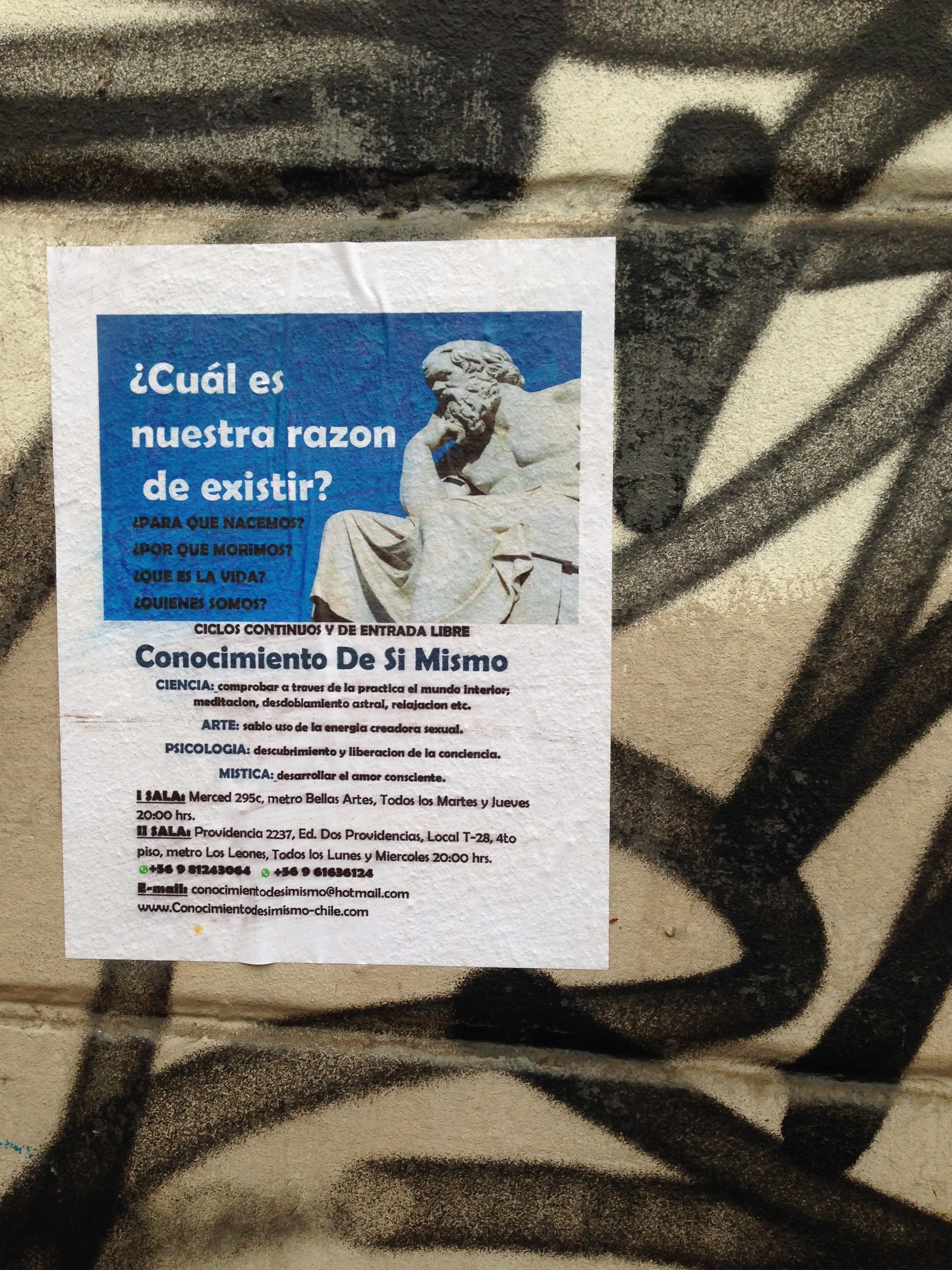Photo: H.L. Maibom: Santiago de Chile 2017.
The Meaning of Life
This is a course about the most fundamental questions: What is the meaning of our existence? How should we live? What is a good life? In the ancient world, philosophy provided answers to how to lead ones life. Socrates is famous for saying “The unexamined life is not worth living.” Athenian Schools of philosophy, including Plato’s Academy, Epicurus’ Garden, and the Stoic School, were all famous for teaching not only the arts and sciences of the day, but also how to live well. We are mostly familiar with this traditions from Roman writers, such as Cicero, Seneca, and Marcus Aurelius. After the fall of Rome, the ancient tradition of philosophy as a guide to living well went into decline. But recently, there is a renewed philosophical interest in addressing these questions.
How do I address these questions in my course? By exposure students to a range of different ideas on what matters in life and how we ought to conduct ourselves, students will learn to appreciate the range of possible answers. Through critical examination of the various options, they also learn to ask questions, evaluate reasons and arguments, and will therefore be in a better position to make up their own minds about the meaning of life.
I usually cover:
Ancient philosophical thought: Socrates (as per Plato’s writings), Stoicism (Epictetus, Seneca, Marcus Aurelius), and Epicureanism (Epicurus)
Religious answers: Hinduism, Buddhism, Christianity
Existentialism: Camus, Sartre, de Beauvoir
Modern popular philosophy: often in the form of movies such as Waking Life (Linklater) and My Dinner with Andre (Malle)
Modern philosophical answers: Susan Wolf, Frankfurt
